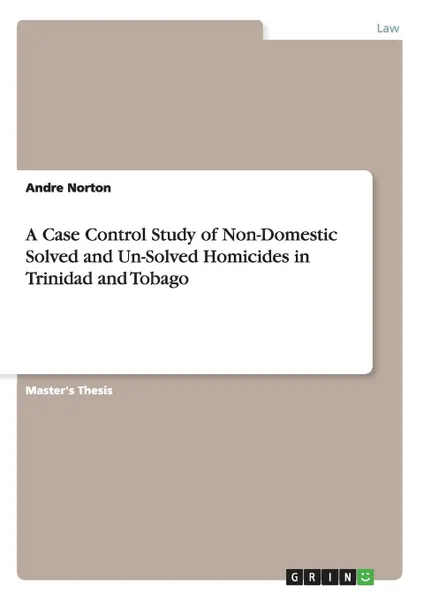A Case Control Study of Non-Domestic Solved and Un-Solved Homicides in Trinidad and Tobago 12+
📘 Master's Thesis from the year 2015 in the subject Law - Criminal process, Criminology, Law Enforcement, University of Cambridge (Wolfson College), course: MSt. Applied Criminolgy and Police Management, language: English, abstract: A case-control research design was used in this study with the aim of identifying the factors which differentiate solved and unsolved non-domestic homicides in Trinidad and Tobago for the seven year period 2008-2014. Two research questions guided the study: 1) Is the use of elements of a structured approach to investigate homicides associated with more solved cases? 2) Are certain characteristics of homicide cases associated with a higher likelihood of detection?The data set for this study comprised all the non-domestic homicides reported to the Trinidad and Tobago Police Service from January 1st 2008 to December 31st 2014 was analyzed against 21 investigative variables and 16 solvability factors. Of these, only 2 investigative variables and 9 solvability factors were found to be strongly associated with solved cases. The two investigative variables were (a) 1st officer secured crime scene; and (b) investigator present at post-mortem. This study confirmed previous research findings in identifying the following variables as solvability factors (a) weapon recovered; (b) suspect named, (c) projectile recovered, (d) offender vehicle identified, (e) fingerprint found, (f) eye-witness (1vs. 0), (g) ballistic on weapon found, (h) 3 investigators versus...
Мнения
